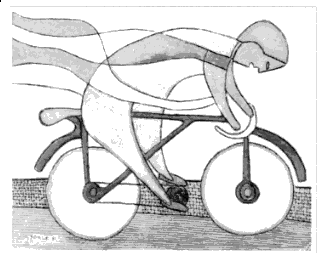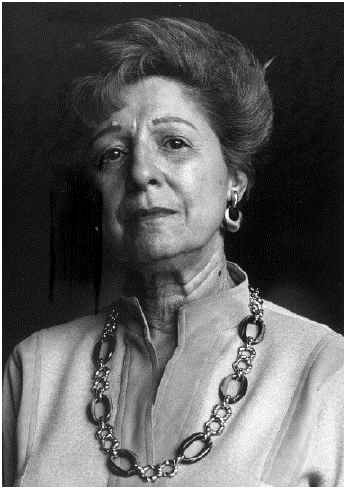Published During
The Year 2003
The Dog Are
Sleeping
Nasdijj
(Ballantine)
But this is also a primer on love, the love of a man for a boy, and a boy for a man --- one that lets us in on all the woe of it and at the same time all the joy of it.
Pedaling Like Crazy
After Life Goes
Downhill
Susan Parker
(Crown)

There are very few who have learned to merge the agony and the comedy and the woe of it. Suzy Parker has figured out how to do it.
Tumbling After
From Vittula
Mikael Niemi
(Seven Stories Press)
Too, there are some tales that will never leave you alone: Grandad's seventieth birthday where most of the drunken visitors end up laid out, row by row, on the floor; Matti getting trapped in an old boiler; a ghastly old witch-man, Russi-Jussi who, when asked for help with the ghost who will not leave Miila in peace, turns into a lovely woman.
Cave
José Saramago
(Harcourt)
The Cave
Mother exPosed
Gay Block
(University of New Mexico Press)

And this is what happens: we get to experience year-by-year the tumult of living as daughter to one who some describe as beautiful, "the most generous person I ever met in my life." Too, a flirt, a queen, selfish, and, according to one, "she reminds me of the movie, The Three Faces of Eve."
Bertha Alyce
Mother's
Body
Suzan-Lori Parks
(Fourth Estate)
Mother's Body
A Revolutionary
Victor Serge
(University of Iowa)
Rather, the hero in this story is Serge himself. Always watching, identifying trends where others see nothing but confusion, trying in his own small way to keep the revolution pure and on course, most of all, working diligently to save the old radicals who were being left destitute, murdered, tortured, or --- like himself --- sent off to exile. And most wonderfully, no matter what those in power had forgotten, violated, smashed in the ground, Serge always true to the principles of the revolution as envisioned by the heroes of 1917 - 1918.
Heights
Emily Brontë
Donada Peters, reader
(Books on Tape)

Donada Peters reads all the parts of this book like a dream, being able to invoke the harsh voice and harsh words of that scoundrel Heathcliff, the sweet seductive (later acidly scolding) Catherine, the stolid peasant intonations of dear, rocklike Nelly, the Yorkshire accents of the pious boor Joseph, the drunken cursing scowling of Hindley, the futile reasoning of the younger Cathy. It's all perfectly contained in this one from Books on Tape. I guarantee that if you try it you'll never forget --- nor forgive, alas --- that foundling gypsy who was able to poison them all for love.
Wuthering Heights
Gooseboy
A. L. Barker
(Virago)

It was Hyde who kissed me. I'd been waiting years, donkeys' years my time --- the calendar year is for calendars --- and how many girls would bring themselves to be kissed by that stitched-up mouth? We sank to our knees, drew each other down. It was need, not passion ...
We clung to each other, rolling and devouring each other.
The tales are all expertly interwoven, and you find yourself begging the author not to end it, please keep it going, the twin strands DNA and RNA, words and pictures, jokes and tragedy, cynicism and innocence, laughter and tears, good and bad: you want her to never stop.
The Gooseboy
Luis Buñuel
(University of Minnesota Press)
Going to a movie is going into a hypnotic trance, he tells us. (He also said that "Watching a movie is like being raped.") Such a funny man he is; such an hypnotist: reading such an glorious piece of writing by this eccentric, honest, beguiling, opinionated firecracker makes us sad that he didn't live long enough to make a movie of his Last Grand Sigh.
My Last Sigh
The Rise and Demise of
The British World Order and
The Lessons for Global Power
Niall Ferguson
(Basic Books)
How in god's name one man can draw together all the loose ends of the 300 year history of the British Empire in 350 or so pages, and make any sense of it at all is beyond me --- but he does it, and he does it well, and if you have any affection for history that is fun and cogent and lively, this should be your baby. I'm already on page 229, and with luck, I'll stretch out my reading, three or four pages a night, so I can squeeze at least another few weeks out of it.
Empire
Buddhist
Psychology
Jack Kornfield
(Sounds True)
Gender and the
Politics of Poverty
Ananya Roy
(University of Minnesota Press)
In the process, she is able to sort through all the clichés that we have been handed over the years about India, Calcutta and the very very poor. She does this by calling up tangential issues: land-use, political reality, the vagaries of squatting, the invisibility of the workers, the patriarchy of the political process, and what she calls "unmapping."
She is sure, very sure, of her discipline. She knows her stuff, is not buffaloed by the homilies and the usual sociological platitudes about the poor. At the same time, she is ambivalent enough about her rôle in Calcutta and in this study so that the book ends up with four different conclusions.